Why I rent and would never buy
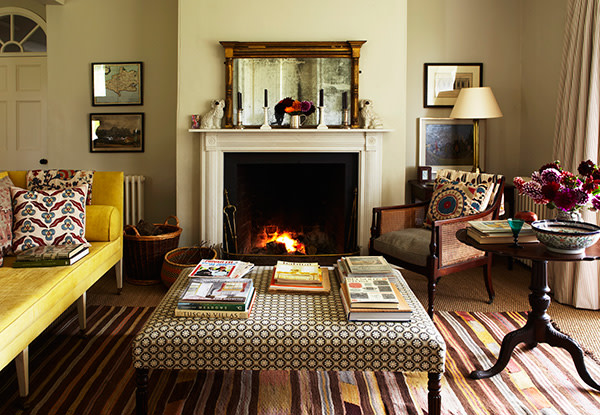
Simply sign up to the Life & Arts myFT Digest -- delivered directly to your inbox.
I live, part of the time, in a village in Dorset (deep in the west of England) where no one owns their own home: an estate village, where every house is tenanted. The entire place consists of about 30 cottages and farmhouses. The smaller cottages are thatched, the larger houses are pure Regency; there is a beautiful lake by our landlord’s splendid Gothic-revival country pile, and a magical walled garden. The whole place could have been conceived by the artist Rex Whistler: it is a dream world.
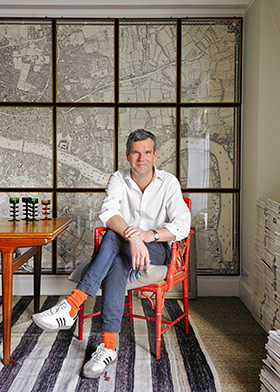
Normally, when dreams are made of this, house prices are staggeringly high; and in a “normal” west Dorset village, whether you live in the grand house or the little cottage, you will be the founder of an eponymous clothing label, or a merchant banker, or a top commercial lawyer, or a bossy retiree escaping from Surrey. My neighbours are largely agricultural; there is a furniture maker and his wife, a renowned food writer; a mechanic, an upholsterer, and several young families who work in the local towns. Many families have stayed here for decades and there is a deep sense of unity about the place, I think perhaps because we are all bound together by a common thread, a shared lack-of-ownership, that is remarkably refreshing in the house-price-obsessed West Country.
In London, I rent as well; the upper floor of a handsome, rambling 1720s Georgian townhouse that is the Bloomsbury headquarters of a venerable arts institution. There is a jumble of flats and an architectural office in the building, alongside the institution’s fine rooms. It is probably true that our rents keep the organisation alive. It, too, is a wonderful place to live, overlooking a leafy square in the heart of London. When I moved here a year or so ago I signed a long lease that allowed me the confidence to spend some money doing things up and getting things how I wanted them without going mad.
I am a five-minute walk from the British Museum; a five-minute walk from my office, on Lambs Conduit Street – all of a sudden one of London’s hottest destinations for menswear and other fashion and itself owned by the Rugby School Estate, another long-term landlord with a large portfolio of commercial units and flats. It is a part of central London that is not dead at night: the lights are on, the flats lived in by young professional couples just starting out in life – some of whom might arrive for a year and stay for a decade. The cafés and restaurants are simple and they work. The People’s Supermarket, a food co-operative, is our corner shop: its slightly sketchy charms and erratic supplies far outweighing the grim fluorescent lighting of the ubiquitous chain supermarkets and coffee stores that clutter the rest of our capital (Starbucks closed on Lambs Conduit Street last year). Why is this neighbourhood alive and kicking? Because normal people can afford to live here; because the Rugby estate takes an intelligent view of long-term rents, and securing good tenancies, and nurturing a community rather than maximising immediate returns.
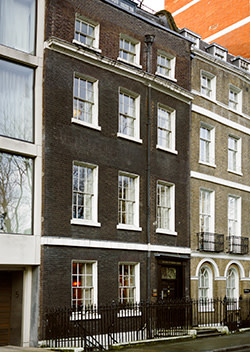
I’m often asked why I don’t own a house. In a world where our only hope of economic recovery seems to be yet another property price boom (which simultaneously chokes the life out of places, and the young out of chances, and causes all the other woes of the UK’s “boomerang generation”, ie: the 26 per cent of young adults now living with their parents) it is a question perhaps worth asking more often.
My first problem has always been that I don’t really love saving money for a deposit. I would sooner own a good painting or a Fornasetti cabinet, or a Ravilious coronation mug (which these days seem to accelerate in price faster than a good flat in Mayfair, and are probably rarer).
In truth, I am perfectly happy to save for the long term: I think, honestly, that I am the only single person I know of my age who is bothering with a realistic pension. I am just not very good at saving a deposit in order to take out a huge mortgage. I am no expert (and I realise I am writing therefore in the wrong newspaper) but it appears to me that giant mortgages are merely a form of renting money, very expensively. And I am not quite sure what happens when interest rates rise above 0.5 per cent, but I suspect that one or two people I know are not planning for that. Does the housing recovery feel a little fragile to you?
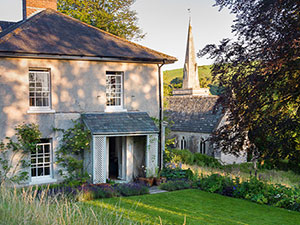
These days many of my friends seem saddled with enormous debts taken to purchase bad houses in very strange localities, miles from anywhere you would choose to live if you had a choice. An awful lot of “making do” goes on, of cheerfully deciding that a decaying neighbourhood with poor services and pathetic transport links, bad schools and dismal local markets is “up-and-coming”. It had better be.
Into these neighbourhoods come the young couples clinging to the abstract hope that their three-bedroom Victorian house is now worth £1.6m because apparently that is what the one round the corner sold for. On this basis they add expensive glass-roofed kitchen extensions (which mean the slow diminution of London’s back gardens), Farrow & Ball colours and giant stainless-steel house numbers, which proclaim from every door: “We are the pioneers, and we hope that things are going to come up around here.”
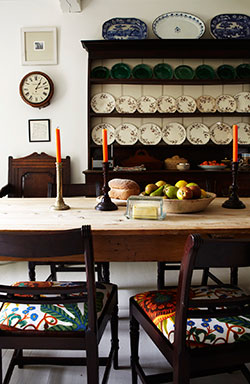
The funny thing is, from time to time, I revisit some of these streets in Ealing or Shepherds Bush or Hackney; and, save for the daftly inflating house prices fuelled by the trickle effect of foreign investment, the neighbourhood itself is as shabby as it was 10 or 20 years ago. My contention is this: the real era of pioneers – when neighbourhoods were worth colonising, when the young couples restored Islington, or Notting Hill, or the squares of Kennington, or the shadier streets of west Chelsea – passed in 1979. That was the last time that a normal person of sensible means with a bit of an eye could buy a house in a place worth living.
I love the simultaneous freedoms and fortune that renting can bring. I am deeply conscious, of course, of the benefits of long-term institutions as landlord, as opposed to get-rich-quick buy-to-let. I wish this were an area that housing policy makers might focus on. But consider: I am free to step away if I wish, never trapped by debt or my situation; yet I am fortunate to live in two beautiful houses in two beautiful places, each of which I could never afford to own (certainly not at this stage of life). Each is exactly where I want to be. I cannot tell you the pleasure I derive from having a five-minute walk to work, instead of an hour-long commute on London’s dreadful rush-hour transport. Walking to work is to live close to heaven.
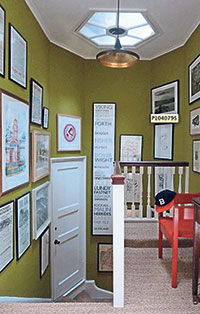
I’m often asked about when I’m old. When I am very old, I definitely want to rent, with no responsibilities for maintenance at all (the bane of my Dad’s life, aged in his eighties, is looking after the windows). I desire the tiniest one-room flat in the centre of the city, close to all amenities, from where I will take my godchildren and perhaps some very handsome young admirers out to dinner. The last thing I will want is a large house with a garden in the country. That is something to enjoy now, while I’m young enough to have fun with it (but not rich enough to own it).
When the boiler blows up, or the roof leaks, it’s not my problem. A simple call, and no cost, is all it takes to have these things fixed. It is my problem, of course, to care for and look after the places I rent; and I love pouring my heart and soul, and a bit of cash, into my houses and gardens, to which people sometimes tell me, “you’re mad, you’re throwing good money away on someone else’s house”, but which I would otherwise spend, I guess, on holidays or booze.
And I wistfully look at their ridiculous designer kitchen, or immodest extensions, on which insane sums were spent, generally financed on borrowed money, in which no more than 500 hot dinners will be cooked before it is all in the next owner’s skip, and I think to myself: who is the mad one, and who is happier?
——————————————-
Letter in response to this article:
A bit excessive in a housing shortage? / From Mr Michael Duggan
Comments